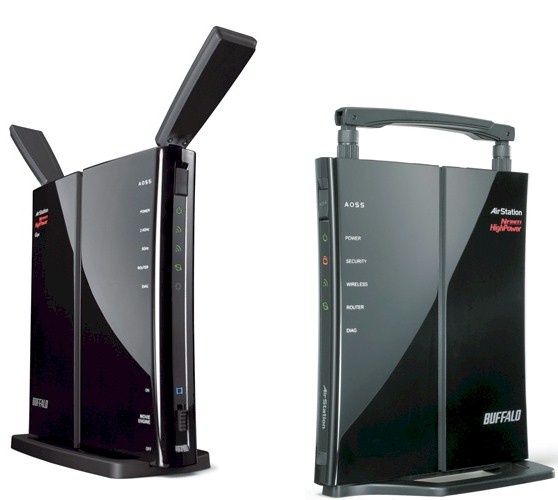 Buffalo has replaced three of its high power routers with updated versions.
Buffalo has replaced three of its high power routers with updated versions.
The new AirStation HighPower wireless routers ship with an updated version of DD-WRT firmware installed, which is also available for download for "select legacy models". The new DD-WRT is said to provide "greater stability and increased performance".
The new routers also include a new user setup wizard and printed admin and access card. The combination is designed to get users connected to the Internet via a secure wireless network within "minutes of opening the box".

Buffalo WZR-600DHP/WZR-300HP and WHR-300HP
The new models are:
WZR-600DHP AirStation HighPower N600 Gigabit Dual Band Wireless Router – Simultaneous dual-band ("N600") router with Gigabit WAN and four switched LAN ports and one USB 2.0 port for drive and printer sharing. Replaces the WZR-HP-AG300H. $119.99 estimated street price.![]()
WZR-300HP AirStation HighPower N300 Gigabit Wireless Router – 2.4 GHz "N300" router with Gigabit WAN and four switched LAN ports and one USB 2.0 port for drive and printer sharing. Replaces the WZR-HP-G300NH. $84.99 estimated street price.
WHR-300HP AirStation HighPower N300 Wireless Router– 2.4 GHz "N300" router with 10/100 ports and dual external upgradeable antennas. No USB drive or printer sharing. Replaces the WHR-HP-G300N. $59.99 estimated street price.
All models are expected to ship "early" this month and are backed by a limited three-year warranty.
